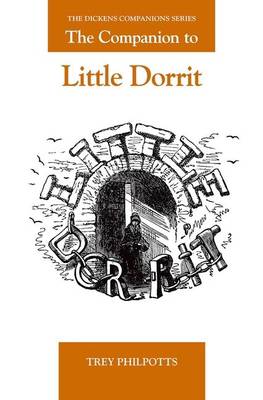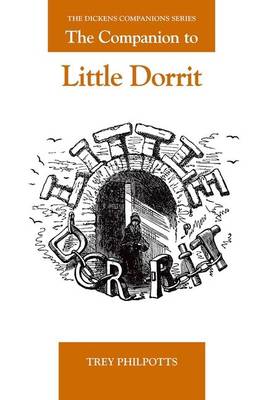
Door een staking bij bpost kan je online bestelling op dit moment iets langer onderweg zijn dan voorzien. Dringend iets nodig? Onze winkels ontvangen jou met open armen!
- Afhalen na 1 uur in een winkel met voorraad
- Gratis thuislevering in België vanaf € 30
- Ruim aanbod met 7 miljoen producten
Door een staking bij bpost kan je online bestelling op dit moment iets langer onderweg zijn dan voorzien. Dringend iets nodig? Onze winkels ontvangen jou met open armen!
- Afhalen na 1 uur in een winkel met voorraad
- Gratis thuislevering in België vanaf € 30
- Ruim aanbod met 7 miljoen producten
Zoeken
€ 254,45
+ 508 punten
Omschrijving
The Companion to 'Little Dorrit' provides the most extensive information yet available on the political, cultural, and personal backgrounds of a novel that today is considered a central text of Dickens's 'dark' period, and a major work of nineteenth-century literature. The Companion emphasizes the importance of the Crimean War through both the complex political rhetorical surrounding the Circumlocution Office, and Dickens's depiction of Daniel Doyce, as well as through many other textual details. The Companion also makes important distinctions between administrative reform and civil service reform, and points to differences between boards of inquiry, committees and reports that conventional wisdom has frequently confused. Of special interest are the notes on the political figures of the day - Lord Palmerston, Lord Aberdeen, Sir Charles Treveylan and Austen Henry Layard, among many others - and on the debates in the House of Commons that were reported by The Times and that eventually found expression in Little Dorrit.
Specificaties
Betrokkenen
- Auteur(s):
- Uitgeverij:
Inhoud
- Aantal bladzijden:
- 576
- Taal:
- Engels
- Reeks:
- Reeksnummer:
- nr. 9
Eigenschappen
- Productcode (EAN):
- 9781873403853
- Verschijningsdatum:
- 17/02/2003
- Uitvoering:
- Hardcover
- Formaat:
- Genaaid
- Afmetingen:
- 163 mm x 236 mm
- Gewicht:
- 997 g

Alleen bij Standaard Boekhandel
+ 508 punten op je klantenkaart van Standaard Boekhandel
Beoordelingen
We publiceren alleen reviews die voldoen aan de voorwaarden voor reviews. Bekijk onze voorwaarden voor reviews.











